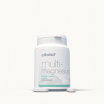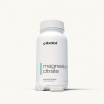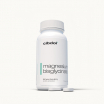Can I take CoQ10 with magnesium?
Published:
Coenzyme Q10 (CoQ10) and magnesium are two popular dietary supplements that provide a range of potential health benefits. Many people take CoQ10 and magnesium together or at staggered times throughout the day. In this comprehensive article, we’ll look at the evidence on safety, optimal timing, dosing considerations, and possible drug interactions when combining CoQ10 and magnesium.
Contents:
- Background on CoQ10 and Magnesium
- Analyzing the Evidence on CoQ10 and Magnesium Supplementation
- Potential Benefits of Combining CoQ10 and Magnesium
- Optimal Timing and Dosing for CoQ10 and Magnesium
- Potential Side Effects and Drug Interactions
- Who Should Avoid Taking CoQ10 and Magnesium Together?
- Additional Tips for Maximizing Absorption
- Can I take CoQ10 with magnesium? Conclusion
- Sources

Background on CoQ10 and Magnesium
CoQ10 and magnesium both play critical roles in supporting health:
- CoQ10 is an antioxidant that helps convert food into cellular energy. It’s involved in key metabolic processes.
- Magnesium assists with over 300 enzyme reactions in the body. It’s vital for nerve transmission, muscle function, immunity, heart health, bone building, and energy production.
- CoQ10 production naturally declines with age, while modern diets often provide inadequate magnesium. Supplements help restore levels.
- CoQ10 doses range from 100-300 mg per day typically. Magnesium is often taken at 100-400 mg doses.
- CoQ10 and magnesium have synergistic benefits for energy, cardiovascular health, bone strength, and more. Many take them together.
Analyzing the Evidence on CoQ10 and Magnesium Supplementation
There is limited direct research examining the combined use of CoQ10 and magnesium supplements. However, some studies provide relevant insights:
- One study found co-administration of CoQ10 and magnesium in rodents amplified antioxidant activity compared to either supplement alone. The combination had an additive effect.
- Magnesium is required for the proper synthesis of ATP energy in the mitochondria. CoQ10 also enhances ATP production. This suggests they could work synergistically to optimize cellular energy.
- Congestive heart failure patients given 300 mg of magnesium along with CoQ10 saw greater improvements in symptoms compared to only CoQ10.
- CoQ10 and magnesium both help lower blood pressure levels. One study in hypertensive rats found combining the two supplements amplified the antihypertensive effects.
- Overall, while clinical research is limited, the biological roles of CoQ10 and magnesium suggest they can be safely used together and may even provide synergistic advantages.
Potential Benefits of Combining CoQ10 and Magnesium
Some of the key potential benefits of taking CoQ10 and magnesium together include:
- Improved energy levels and exercise performance - Both enhance cellular energy production and ATP synthesis.
- Increased antioxidant protection - CoQ10 directly neutralizes free radicals while magnesium assists antioxidant enzyme function.
- Better heart health - Combination may improve symptoms in heart failure patients more than CoQ10 alone. Also helps lower blood pressure.
- Reduced muscle cramps and migraines - Magnesium deficiency is linked to these conditions; CoQ10 may further help.
- Stronger bones and teeth - Magnesium is important for bone formation while CoQ10 may enhance osteoblast differentiation.
- Healthy blood sugar control - CoQ10 improves insulin sensitivity and carbohydrate metabolism aided by magnesium.
- Neuroprotective effects - Both help neutralize oxidative damage and support neuronal health.
Optimal Timing and Dosing for CoQ10 and Magnesium
Some key considerations regarding timing and dosing when taking CoQ10 and magnesium together include:
- Morning and night - Taking 100-200 mg of magnesium in morning and evening ensures consistent levels.
- With food - Absorption of both CoQ10 and magnesium is enhanced when taken with meals containing fat or oils.
- Staggered doses - Spreading out CoQ10 and magnesium, as opposed to together, may improve absorption.
- 2:1 ratio - Some suggest using twice as much magnesium as CoQ10 for optimal effects.
- Maximums - Don’t routinely exceed 400 mg per day magnesium or 300 mg CoQ10 without medical guidance.
- Response - Start with moderate doses and increase slowly. Avoid overdoing either supplement.
- Balance - Monitor for deficiency symptoms or excess of either nutrient when combining.
Potential Side Effects and Drug Interactions
When taken at appropriate doses, CoQ10 and magnesium are generally well-tolerated with a low risk of side effects. However, some considerations include:
- Diarrhea - High doses of magnesium may provoke loose stools or diarrhea. Reduce dose if this occurs.
- Insomnia - Magnesium relaxes muscles, while CoQ10 may have a stimulating effect for some people. Avoid taking too close to bedtime.
- Bleeding risk - High dose magnesium may increase anti-clotting effects in those taking blood thinners. Monitor with medical guidance.
- Drug interactions - Magnesium and CoQ10 may interact with certain medications like statins or beta blockers. Check with your pharmacist.
- Bipolar disorder - High dose magnesium may aggravate mania symptoms in some individuals. Use caution with mood disorders.
- Kidney impairment - Requires dose adjustment of magnesium for those with kidney dysfunction. Consult your doctor.
Who Should Avoid Taking CoQ10 and Magnesium Together?
While considered very safe for most healthy adults, some situations where caution is warranted when combining CoQ10 and magnesium include:
- Severe kidney dysfunction - Requires medical guidance to adjust magnesium doses appropriately.
- Digoxin use - High magnesium may elevate digoxin levels. Monitor closely.
- Gastric ulcer disease - Magnesium salts may aggravate ulcers and acid reflux symptoms when taken orally.
- Pregnancy and breastfeeding - Established safety is unclear; avoid high supplemental amounts of both.
- Children - Dosing is not established in pediatric populations. Get medical guidance first.
- Prior to surgery - High magnesium doses may exaggerate effects of anesthesia. Discontinue 1-2 weeks before surgery.
Overall, speak with your doctor before supplementing with CoQ10 and magnesium if you have any medical conditions or take prescription medications. Ensure you maintain adequate hydration and nutrition as well.
Additional Tips for Maximizing Absorption
Some additional tips that may help maximize absorption and benefits when taking CoQ10 and magnesium together include:
- Take each with food for enhanced absorption - especially foods containing healthy fats.
- Look for more absorbable forms - magnesium glycinate, malate, citrate, or orotate and ubiquinol CoQ10.
- Avoid overdoing calcium - High calcium intake can impair magnesium absorption.
- Manage stress - Chronic stress depletes magnesium and lowers CoQ10.
- Get adequate B vitamins - They assist in magnesium utilization and CoQ10 synthesis.
- Exercise regularly - Helps cellular uptake of magnesium and CoQ10.
- Increase dietary sources - Eat more nuts, seeds, whole grains, greens, fatty fish.
- Consider a broad spectrum micronutrient formula - To provide balanced intake of essential vitamins and minerals.
Can I take CoQ10 with magnesium? Conclusion
In summary, available evidence suggests CoQ10 and magnesium are safe and well-tolerated when taken together. They may even have synergistic advantages for energy, antioxidant protection, cardiovascular health, blood sugar regulation, and more. Typically dosing 100-400 mg of magnesium along with 100-200 mg of CoQ10 is considered safe, but start low with any new supplement. Timing doses staggered throughout the day with food maximizes absorption. Monitor for side effects like diarrhea or insomnia, and consult your doctor about potential drug interactions. With appropriate use, combining supplemental CoQ10 and magnesium appears to be a safe, natural way to increase intake of these vital nutrients.


















